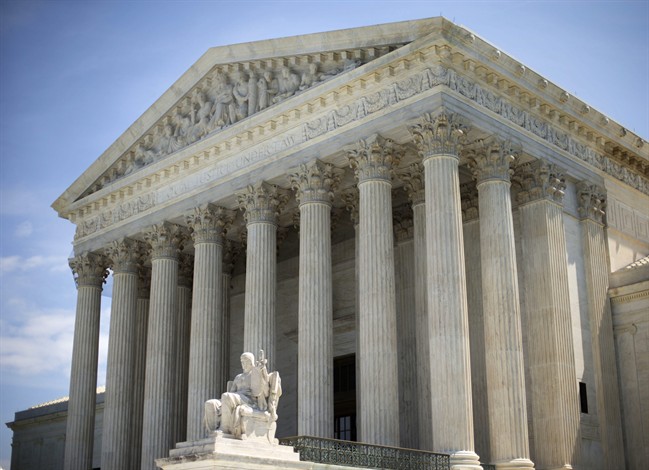The Liberal government has committed to acting on each of the 94 recommendations from the Truth and Reconciliation Commission. One of the recommendations is to repeal Section 43 of the Criminal Code, the section which allows parents to use physical force to discipline their children.

Children’s rights advocates across the country have been fighting to get this law repealed for years.
In 2004, a legal aid organization in Toronto called Justice for Children and Youth brought a constitutional challenge against Section 43 to the Supreme Court of Canada, but the court ruled that parents’ use of physical force to discipline their children was acceptable within certain boundaries.
Parents are not allowed to use physical discipline on children less than 2 years old, and they are not allowed to hit children with objects such as a belt or administer blows to a child’s head.
WATCH: Digging Deeper – Truth and Reconciliation Commission’s final report
The children’s advocacy groups who have been fighting against this law believe that any form of physical discipline is inappropriate.
“We’re now in a stage where social science evidence is now really clear that this is a harmful practice and the long term outcomes for children are really negative,” said Cheryl Milne from the Canadian Coalition for the Rights of Children. She was part of the case against the Supreme Court 11 years ago.
“Children are still the only group in society that we allow to be hit, and they are the most vulnerable and they can be hurt very seriously by the big people who hit them,” Milne added.
Kathy Lynn from Corinne’s Quest, an organization that has been working to get the law repealed, said she has spent 25 years involved in this effort.
“It’s just appalling, we have a law in this country which permits legal assault of our children,” Lynn said. “It’s not necessary and it isn’t even an effective way of disciplining children.”
Studies have recognized that physical punishment is not effective for preventing children from repeating negative behaviour because the message gets mixed up with the use of physical force, Milne explained
She said the negative effects of physical discipline can include long term issues with self esteem and mental health.
READ MORE: Vancouver group wants spanking law scrapped in Canada
There are nearly 50 countries around the world that have banned physical punishment of children, beginning with Sweden in 1979.
Canada signed the United Nations’ Declaration on the Rights of the Child in 1990, but Section 43 does not comply with the objectives set out in this declaration, Lynn explained.
“The UN has been saying to Canada all these years that we need to repeal Section 43,” Lynn said.
Supporters of Section 43 have argued that it is not the government’s place to tell parents how they are allowed to discipline their children.
But Milne said this is an unrealistic expectation.
“There are many things that we say to parents, as a society, we don’t want you to do this to your children,” she said. “We don’t let parents refuse to educate their children.”
Mary Birdsell, the executive director of Justice for Children and Youth, said that under this repeal minor incidents would likely still not come to the attention of the police or the criminal courts.
“Police officers in all of their interactions have the capacity to use their discretion not to lay charges if it’s not appropriate circumstances,” Birdsell said. “I think that police officers will be ready to engage in education.”
If the government repeals Section 43 in order to satisfy the Truth and Reconciliation Commission’s call to action, physical punishment of children would be considered assault, Lynn explained. But the point of this legislation would not be to charge parents for minor incidents of physical discipline.
“The reality is, the courts will not be running around trying to criminalize parents,” Lynn said.
“What will happen is we will see a sudden rising of many good parenting education programs helping parents learn better ways to raise their kids.”


Comments